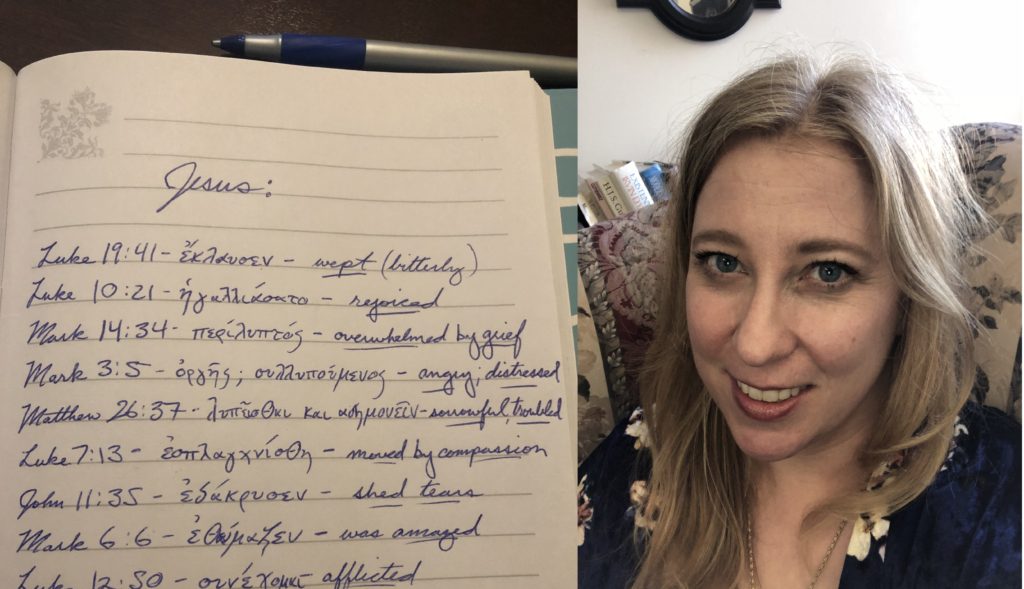
This month, in a time of great division, when pastors might feel tempted to facilitate a superficial détente within their communities (at the service of “quiet” instead of peace), we *must* take on the topic of “Deep Unity vs. Cheap Unity.” The integrity of the Church depends upon it.
When I’ve taught seminary courses in pastoral care & congregational health, we’ve always begun our semesters together with an in-depth study on personal and congregational integrity, starting with The Shema (Deut. 6:4-5):
Hear O Israel, the Lord our God, the Lord is ONE.
שמע ישראל יהוה אלהינו יהוה אחד
Love the Lord your God with all your heart, with all your soul, and with all your ‘very’ [strength/force/might]…
ואהבת את יהוה אלהיך בכל לבבך ובכל נפשך ובכל מאדך
If we are to love the One (Whole, Integrated, Holy) God, it will require everything that we have, and all that we are. …Because the totality of who we are (individually & collectively) matters in how we love God. The two cannot be separated. It’s a matter of integrity.
In my own seminary days, I interwove my divinity training with doctoral studies in psychology in an effort to understand what it means to be wholly human. Perhaps I should have known that, to best understand a thinker’s contributions -whether in theology or psychoanalysis- it is often best to start in the biography section. Exegete the exegetes. But I failed to do this when I was assigned the readings of John Howard Yoder in seminary- works such as The Politics of Jesus, & Binding & Loosing. Yoder was one of my tradition’s most prominent writers on the topic of shalom: peace, justice, & unity. As a young woman, I read his works and accepted them without question, and without an appreciation for their context: Yoder’s own life. This was a mistake. It has since been uncovered that Yoder had a long history of sexually abusing women (including his seminary students). And a recent essay illuminates how Yoder’s peace theology skewed toward the inclusion of perpetrators into the community, motivated by his self-justification (Villegas, 2021.) Rev. Isaac Samuel Villegas wrote a critically important analysis, The Ecclesial Ethics of John Howard Yoder’s Abuse (2021). In it, Villegas examines the abuses by Yoder vis a vis Yoder’s writings on peace and unity. Villegas juxtaposes Yoder’s words/deeds, theories/actions, and mind/body. He notes how Yoder used his own theology and ecclesiology of peace to manipulate those who would try to hold him accountable for his abuses. Yoder utilized his own work in justice to justify his abusive behaviors and misogyny.
Rev. Villegas shared with Shepherd Heart:

“As a pastor committed to peace, I’ve read a lot of John Howard Yoder’s work over the past two decades. He has been an important theological authority for thinking through Christian involvement in politics for many of us. However, I heard rumors that he had abused women during his career. A couple years ago I decided to spend time in his archives, after his confidential files were made available to the public. I learned that his sexual abuse is no longer deniable, and I undertook the work of reconsidering his theological contributions. This essay [free for public download in the month of January 2021] considers how the witness of the women who survived his abuse exposes the sexism latent in his development of a framework for moral discernment and community discipline. Yoder designed an ecclesiology that was congruent with his pursuit of unaccountable power over the women he used as subjects for working out his exploitative sexuality. His theological contributions, I argue, cannot be separated from his behavior.”
Villegas’ analysis on Yoder strikes me as very relevant to this month’s topic of “Deep Unity vs. Cheap Unity,” as cheap unity can be used as a tool for manipulation and abuse within congregations.
In our Christian tradition, I shudder at the thought of how Yoder’s legacy lives on. A week ago, with my eyes and ears attuned to “cheap unity,” I noticed a song that is often sung without second thought in my community, with lyrics along these lines:
For just and unjust, a place at the table;
Abuser, abused; a need to forgive.
These words made me stop in my tracks (and call up my fellow worship planners.) Putting the onus on the abused to forgive abusers –without requiring accountability and justice — for the sake of quiet (not peace) & civility? That’s cheap unity! And it’s dangerous. It is so important that we resist and confront cheap unity in all its forms, in favor of deep unity & justice. We must understand, that in order to have deep unity, there has to be accountability. In order to have peace, there must be justice. We cannot require forgiveness at the cost of re-traumatizing those who are being victimized, oppressed, or marginalized- whether we are talking about sexual abuse, or systemic racial injustice. If we foreclose the hard work of deep unity within our churches, we lose our integrity and miss the opportunity to love God with everything we’ve got.
In this issue:
Tyranny of the Middle examines polarization as a sign and symptom of the need for justice- tension that should not be foreclosed or quelled, without the deep, hard work of repentance and confronting our idols.
We examine unity as divine diversity, not conformity (and never without accountability & justice)
We discuss resources for pastors who seek deep unity (not cheap unity), especially within Evangelical contexts.
We discuss FAQs on support for pastors undergoing disruption and transition, as they seek coaching.
We remember peacemaker and Pastor Kelly Bates Oglesby, Shepherd Heart contributor and co-worker in the Gospel. May her memory be a blessing.
Finally, because we all need it, we discuss Starting 2021 with Joy.
—-
Villegas, I.S. (2021), The Ecclesial Ethics of John Howard Yoder’s Abuse. Modern Theology, 37: 191-214. https://doi.org/10.1111/moth.12623

“Deep Unity vs. Cheap Unity”
